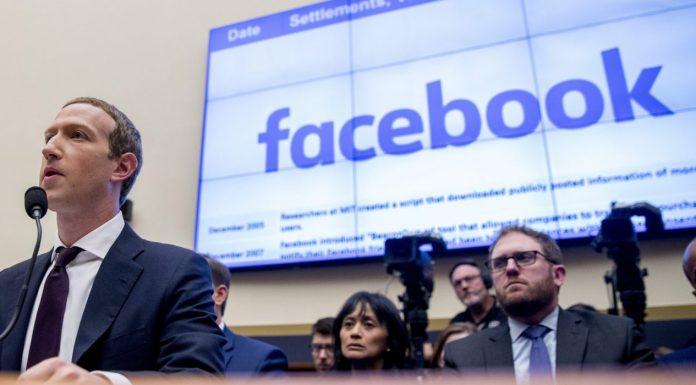Facebook CEO Mark Zuckerberg promised that “nobody else” except the sender and recipient can read private messages on WhatsApp, but the company has massive offices in which employees review texts and videos.
WhatsApp gives users the same false assurance every time they log on to send a message, ProPublica reported.
“No one outside of this chat, not even WhatsApp, can read or listen to them,” the on-screen message states.
Zuckerberg repeated the same false claim in 2018 while testifying before the U.S. Senate.
“We don’t see any of the content in WhatsApp,” he said.
Facebook-owned WhatsApp has employees stationed in Texas, Ireland and Singapore who have been trained to investigate flagged messages from the app’s 2 billion users.
At these locations, more than 1,000 WhatsApp contractors sort through thousands of user-reported messages each day in search of violent threats, child pornography, scams and spam.
Zuckerberg admitted in March 2019 that Facebook does not “have a strong reputation for building privacy protective services,” but he said he hoped that WhatsApp could serve as a model for reform.
He described WhatsApp as having a “privacy-focused vision.”
Zuckerberg claimed that WhatsApp has higher privacy standards because it uses end-to-end encryption.
End-to-end encryption means that only senders and recipients have the ability to read messages.
But end-to-end encryption has little meaning if WhatsApp can sidestep the safeguard at will.
“I believe the future of communication will increasingly shift to private, encrypted services where people can be confident what they say to each other stays secure and their messages and content won’t stick around forever,” Zuckerberg said.
“This is the future I hope we will help bring about,” he continued. “We plan to build this the way we’ve developed WhatsApp.”
Facebook’s internal marketing presentations do not acknowledge the disparity between WhatsApp’s “privacy narrative” and the hundreds of employees who snoop on private messages.
WhatsApp Director of Communications Carl Woog has brushed aside the company’s false statements about privacy by stating that the content moderators only target “the worst” violators.
Woog said that WhatsApp does not consider the employees who sift through private messages to be content moderators at all.
“We actually don’t typically use the term for WhatsApp,” he said without explanation.
WhatsApp released a statement in response to the allegation that the company—despite repeated assurances to the contrary—can access private messages and routinely does so.
“WhatsApp is a lifeline for millions of people around the world,” the company said. “The decisions we make around how we build our app are focused around the privacy of our users, maintaining a high degree of reliability and preventing abuse.”
The app’s sister-companies, Facebook and Instagram, do not pretend to protect private data and messages.
Neither platform encrypts messages, and about 15,000 so-called content moderators can search through messages and videos.
Facebook even releases “transparency reports” that outline actions taken against private accounts.
In line with its “fierce” privacy narrative, WhatsApp does not release similar reports.
But WhatsApp possesses data on actions against users and shares it with the Department of Justice.
In at least one case, WhatsApp shared information with the federal government that has led to the prosecution of a Treasury Department official who leaked classified documents to BuzzFeed News.

